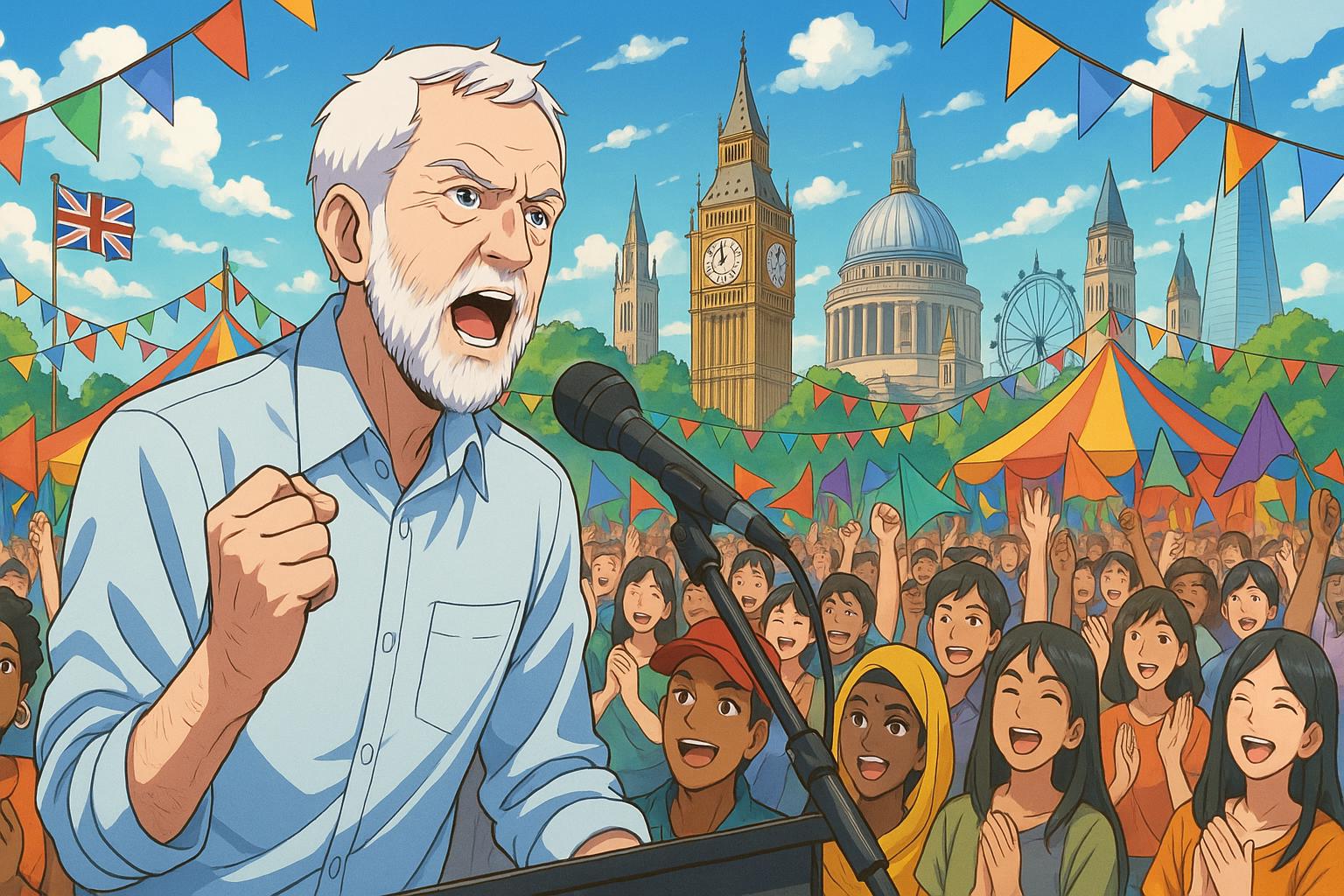Jeremy Corbyn delivered a sharp indictment of Sir Keir Starmer, voicing alarm over his recent comments that suggested the United Kingdom risked becoming an "island of strangers" amid escalating immigration challenges. This remark came during a high-profile immigration announcement that highlighted the necessity for more stringent measures to manage migration and foster community integration. Speaking at the Wide Awake Festival in Brockwell Park, south London, Corbyn condemned such language, arguing it mirrors the divisive rhetoric of figures like Enoch Powell, whose infamous "rivers of blood" speech in 1968 warned of white British people turning into "strangers in their own country."
Corbyn urged his audience to reject the idea of the UK as a land fractured by differences, advocating instead for a narrative that celebrates, as he termed it, the "diversity, different backgrounds, and joy" that enhance strength and community. He asserted that London's vibrancy is derived from its multicultural makeup, rendering it a one-of-a-kind city. His challenge to Starmer not only marked a significant political moment but underscored the growing discomfort within the Labour Party regarding immigration discourse, and the critical need for a more realistic and pragmatic approach to national cohesion.
Beyond immigration, Corbyn took the opportunity to condemn British arms sales to Israel, calling for support for anti-war protests. He decried Britain's role in supplying weapons that contribute to conflicts, underscoring the moral imperative of addressing arms trades linked to humanitarian crises like the ongoing situation in Gaza. To tackle social inequality, he proposed a heavier tax burden on the wealthy, asserting that true societal fairness cannot be achieved without tackling wealth distribution effectively.
While Corbyn's remarks may resonate with a faction of Labour’s traditional voter base, they also raise issues concerning his relationship with the party following his loss of the whip. His shifting stance reflects a broader struggle within Labour as party members grapple with Samer's leadership and direction. Detractors of Starmer argue that moving away from core Labour principles could risk alienating committed supporters and dilute the party's essential message.
At the same festival, the Irish rap trio Kneecap drew attention after a member was charged for allegedly displaying a Hezbollah flag. Their participation highlighted the festival’s focus on social commentary, illustrating how cultural events intertwine with political narratives. However, the festival has faced local opposition, with residents expressing frustration over disturbances caused by such events, leading to legal challenges against Lambeth Council. Even after a High Court ruling deemed part of the council's actions "irrational," ongoing planning applications have allowed events to persist, reflecting the persistent conflict over public space management in London.
As emerging tensions surrounding immigration policy, arms trading, and local governance unfold, Corbyn’s statements not only reflect personal convictions but also signify a broader ideological struggle within Labour concerning its identity and future direction. The challenge of reconciling previous leadership approaches with current political realities continues to inform the discourse, emphasizing the fragile balance between tradition and the necessity for modern solutions in an ever-evolving political landscape.
Source: Noah Wire Services
